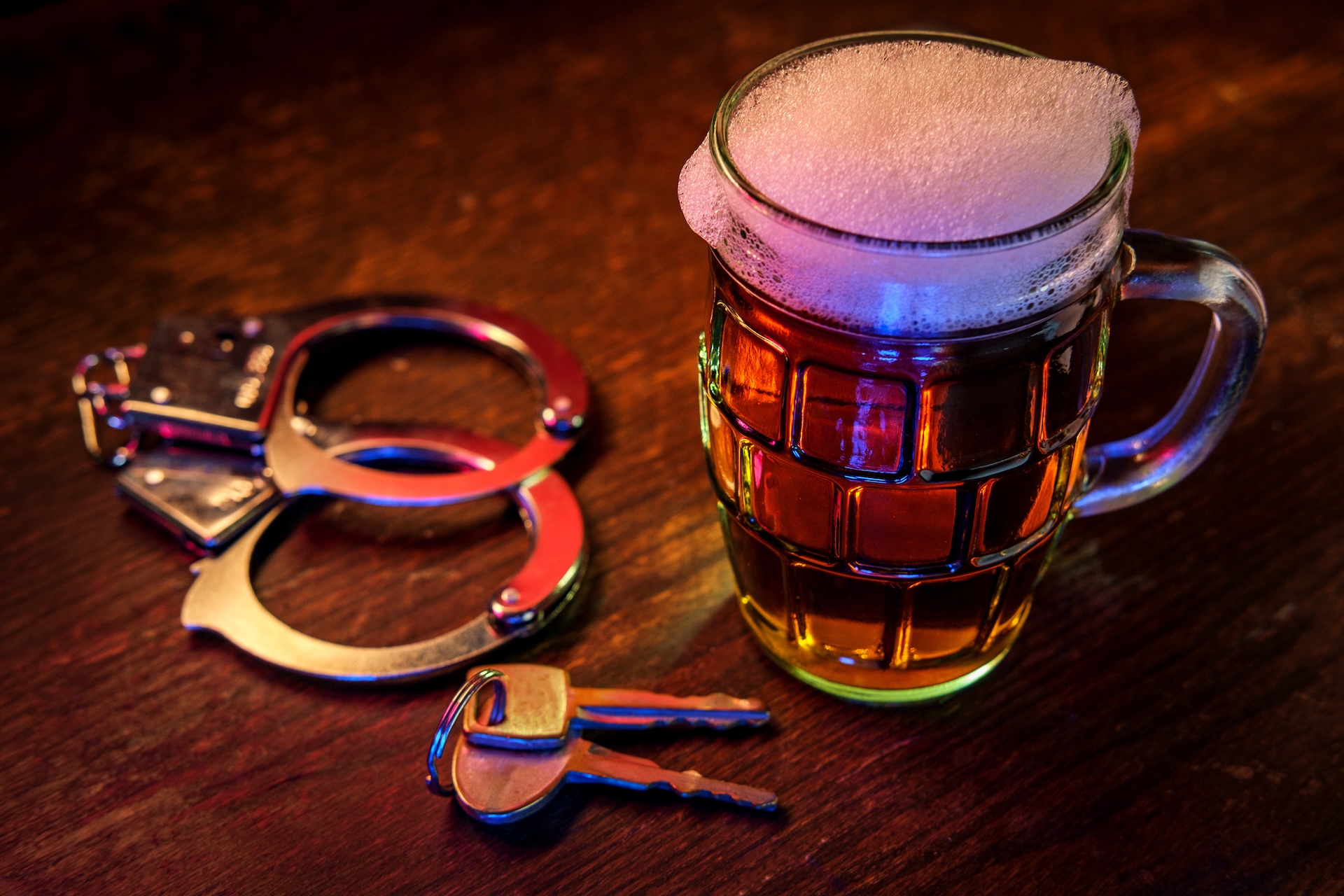DWI Drug Intoxication in Texas: What You Need to Know
When most people think of a DWI (Driving While Intoxicated) charge in Texas, they assume it involves alcohol. But under Texas law, you can be charged with DWI for being under the influence of any substance, including prescription medications, over-the-counter drugs, or illegal narcotics, if it affects your ability to drive.
In fact, DWI drug intoxication charges are on the rise in Texas, and the penalties are just as serious as alcohol-related DWIs. If you’ve been arrested for driving under the influence of drugs in Conroe, The Woodlands, or anywhere in Montgomery County, you need an experienced defense attorney who understands the complexities of DWI drug cases and how to challenge the state’s evidence.
At Griffin & Cain, Attorney at Law, PC, we know how to defend DWI drug charges and protect your future.


What Is DWI Drug Intoxication?
Under Texas Penal Code §49.04, a person commits DWI if they are:
“intoxicated while operating a motor vehicle in a public place.”
“Intoxicated” is defined as either:
- Not having the normal use of mental or physical faculties due to the introduction of alcohol, a controlled substance, a drug, a dangerous drug, a combination of substances, or any other substance; or
- Having a blood alcohol concentration (BAC) of 0.08 or higher.
That means you can be charged with DWI in Texas even if:
- You had no alcohol in your system, and
- You were using a prescription medication legally prescribed to you.
If law enforcement believes a drug, legal or illegal, impaired your ability to drive, you can be arrested and prosecuted for DWI drug intoxication.
Common Drugs Involved in DWI Cases
You might be surprised to learn which substances can lead to DWI charges in Texas. These include:
Illicit Drugs
- Marijuana
- Cocaine
- Methamphetamine
- Heroin
- Ecstasy (MDMA)
- LSD or hallucinogens
Prescription Medications
- Painkillers (Oxycodone, Hydrocodone, Tramadol)
- Anti-anxiety drugs (Xanax, Valium)
- Sleep aids (Ambien, Lunesta)
- ADHD medications (Adderall, Ritalin)
Over-the-Counter Medications
- Cold and allergy medicines (Benadryl, NyQuil)
- Motion sickness medications
- Diet pills and supplements
Even if the drug is legally prescribed or available over the counter, it can result in a DWI charge if it impairs your ability to operate a vehicle.
How DWI Drug Intoxication Is Investigated in Texas
A DWI drug case often starts with a traffic stop, possibly for erratic driving, swerving, or a minor traffic violation. Once stopped, the officer may suspect drug use based on:
- Bloodshot eyes
- Slurred speech
- Slow responses or nervousness
- Paraphernalia or pill bottles in plain view
3. Drug Recognition Expert (DRE) Evaluation
If alcohol is ruled out, an officer may call a Drug Recognition Expert, a specially trained officer, to conduct a multi-step exam. DREs assess things like pupil size, pulse, coordination, and muscle tone to determine if drugs are involved. These assessments are highly subjective and often flawed.
4. Blood or Urine Test
Unlike alcohol-related DWIs, where breath tests are standard, drug DWI cases typically rely on blood or urine tests to detect the presence of drugs. However, these tests only confirm that a drug is in your system, not that you were impaired at the time of driving.
We’re Available To Speak With You
Contact Our Office
Today
We will provide a complimentary consultation so that you can discuss your issue with us. Get started by calling us or contacting us via email, and we will respond as soon as possible.
A Few Words From Satisfied Clients
From the start, John approached my case with compassion, integrity, and a deep understanding of how high the stakes were for my family. He listened closely, advised me wisely, and fought with heart and determination to ensure that our side of the story was heard. He treated me not just as a client, but as someone whose voice and lived experience mattered deeply.
Throughout this difficult journey, John never wavered. His professionalism, responsiveness, and strategic guidance gave me strength and confidence even in the most uncertain moments. He and his team poured countless hours into preparing a case grounded in truth, love, and the best interests of my granddaughter.
Though the final decision was not what we had prayed for, I will always be thankful for the dignity, support, and relentless effort John and his firm gave to our family. I would recommend him wholeheartedly to anyone seeking strong, ethical, and empathetic representation.
With deep appreciation,
Rhonda Brown
Texas
What stood out the most was his ability to resolve my legal matters in a way that allowed me to continue living my life stress-free. Knowing he had everything under control gave me such peace of mind. He was always available to answer my questions and made me feel like a priority every step of the way.
If you’re looking for a reliable, communicative, & skilled attorney, I wholeheartedly recommend John Herbig! He made a difficult situation so much easier to navigate, and I’m truly grateful for his work. Thank you John!
Problems with DWI Drug Testing
Defending against a DWI drug charge often involves challenging the scientific reliability of the evidence. There are many problems with the state’s approach:
Presence ≠ Impairment
Just because a drug is detected in your system doesn’t mean you were impaired. Some substances, especially marijuana, can remain in your system for days or weeks after use.
No Legal Limit for Most Drugs
Unlike alcohol, there is no legal limit for most drugs. Prosecutors must prove actual impairment, which is a higher burden and often harder to demonstrate.
Faulty or Contaminated Testing
Blood and urine samples must be properly collected, preserved, and analyzed. We routinely find issues such as:
- Chain-of-custody errors
- Contamination
- Testing delays or inaccuracies
- Use of non-certified labs
DRE Evaluations Are Not Infallible
DREs often rely on subjective observations, and their training is not equivalent to medical or forensic expertise. Their conclusions can and should be cross-examined in court.
Penalties for DWI Drug Offenses in Texas
The penalties for DWI drug intoxication are essentially the same as for alcohol-related DWI, and they increase with each offense.
First Offense (Class B Misdemeanor)
- Up to $2,000 fine
- Up to 180 days in jail
- License suspension up to 1 year
- DWI education course
- Possible ignition interlock device
Second Offense (Class A Misdemeanor)
- Up to $4,000 fine
- Up to 1 year in jail
- License suspension up to 2 years
- Community supervision/probation
Third or Subsequent Offense (Third-Degree Felony)
- 2–10 years in prison
- Up to $10,000 fine
- Extended license suspension
- Felony record with long-term consequences
Additional penalties apply if:
- You had a child under 15 in the car (automatic felony)
- You caused an accident, injury, or death
- You refused chemical testing
How We Defend DWI Drug Cases
At Griffin, Cain & Herbig, we use a multi-pronged approach to defending against DWI drug charges:
Investigating the Stop
We review whether the officer had reasonable suspicion to stop you and probable cause to arrest you. If not, we can move to suppress all resulting evidence.
Challenging Chemical Tests
We analyze the collection and handling of your blood or urine sample. Errors in this process may make the test inadmissible in court.
Cross-Examining the DRE
We challenge the qualifications, methods, and conclusions of Drug Recognition Experts. Their opinions are not immune to scrutiny.
Negotiating or Going to Trial
In some cases, we negotiate for dismissals or reduced charges (such as reckless driving). In others, we go to trial to fight for your acquittal. Our goal is always the best possible outcome for your unique case.
Don’t Let a DWI Drug Arrest Define Your Future
DWI drug intoxication charges are serious, but they are also defensible. Unlike alcohol DWIs, where breath tests often offer concrete numbers, drug DWI cases are built on imprecise science and subjective opinion.
Don’t plead guilty without speaking to an experienced attorney. The consequences can last for years, but a strong legal defense can help you protect your license, freedom, and record.
We’re Available To Speak With You
Contact Our Office
Today
Phone:
Email:
info@griffinandcain.com
Address:
400 W. Davis St., Suite 200. Conroe, TX. 77301
